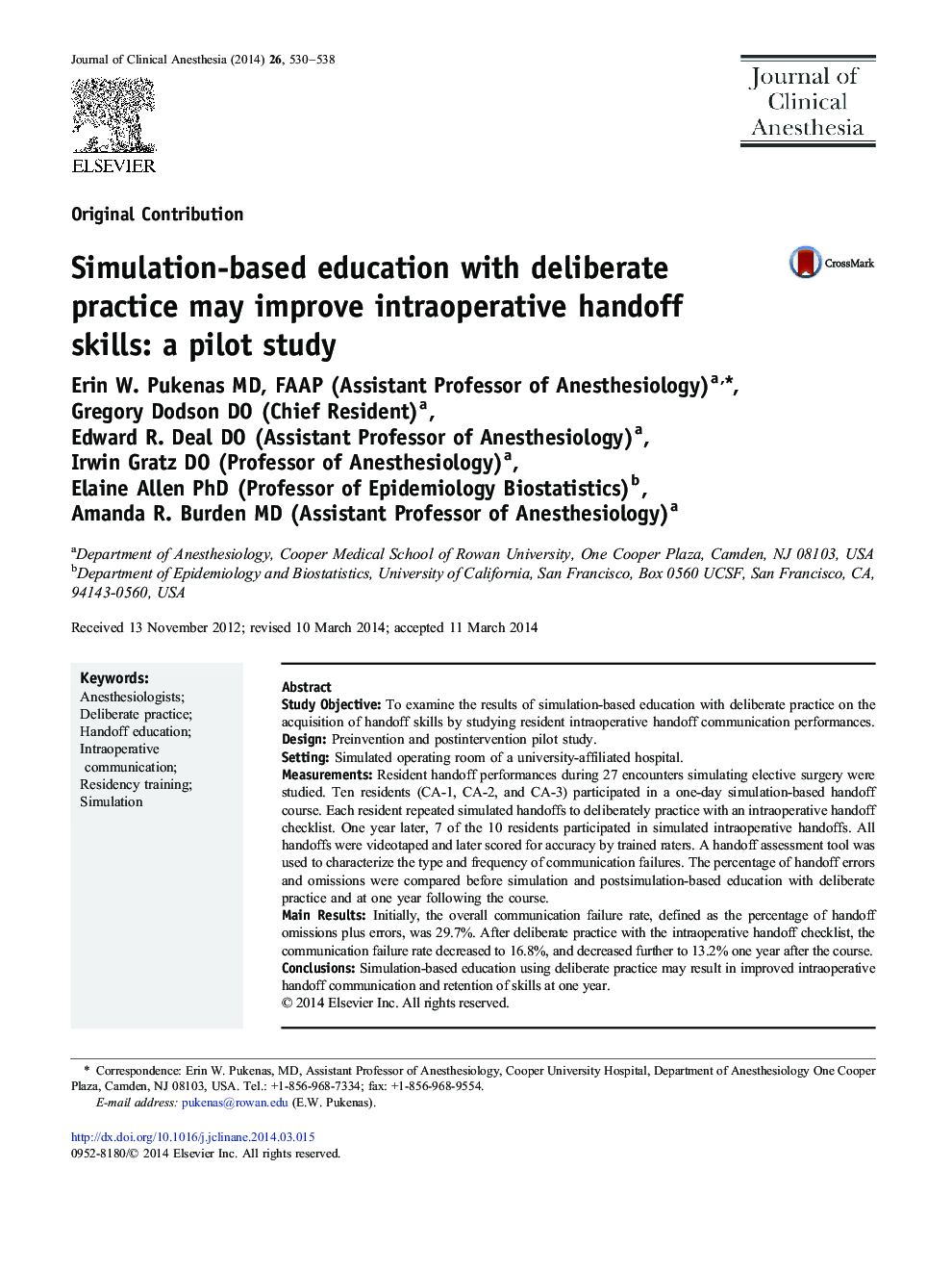| Article ID | Journal | Published Year | Pages | File Type |
|---|---|---|---|---|
| 2762279 | Journal of Clinical Anesthesia | 2014 | 9 Pages |
Study ObjectiveTo examine the results of simulation-based education with deliberate practice on the acquisition of handoff skills by studying resident intraoperative handoff communication performances.DesignPreinvention and postintervention pilot study.SettingSimulated operating room of a university-affiliated hospital.MeasurementsResident handoff performances during 27 encounters simulating elective surgery were studied. Ten residents (CA-1, CA-2, and CA-3) participated in a one-day simulation-based handoff course. Each resident repeated simulated handoffs to deliberately practice with an intraoperative handoff checklist. One year later, 7 of the 10 residents participated in simulated intraoperative handoffs. All handoffs were videotaped and later scored for accuracy by trained raters. A handoff assessment tool was used to characterize the type and frequency of communication failures. The percentage of handoff errors and omissions were compared before simulation and postsimulation-based education with deliberate practice and at one year following the course.Main ResultsInitially, the overall communication failure rate, defined as the percentage of handoff omissions plus errors, was 29.7%. After deliberate practice with the intraoperative handoff checklist, the communication failure rate decreased to 16.8%, and decreased further to 13.2% one year after the course.ConclusionsSimulation-based education using deliberate practice may result in improved intraoperative handoff communication and retention of skills at one year.
